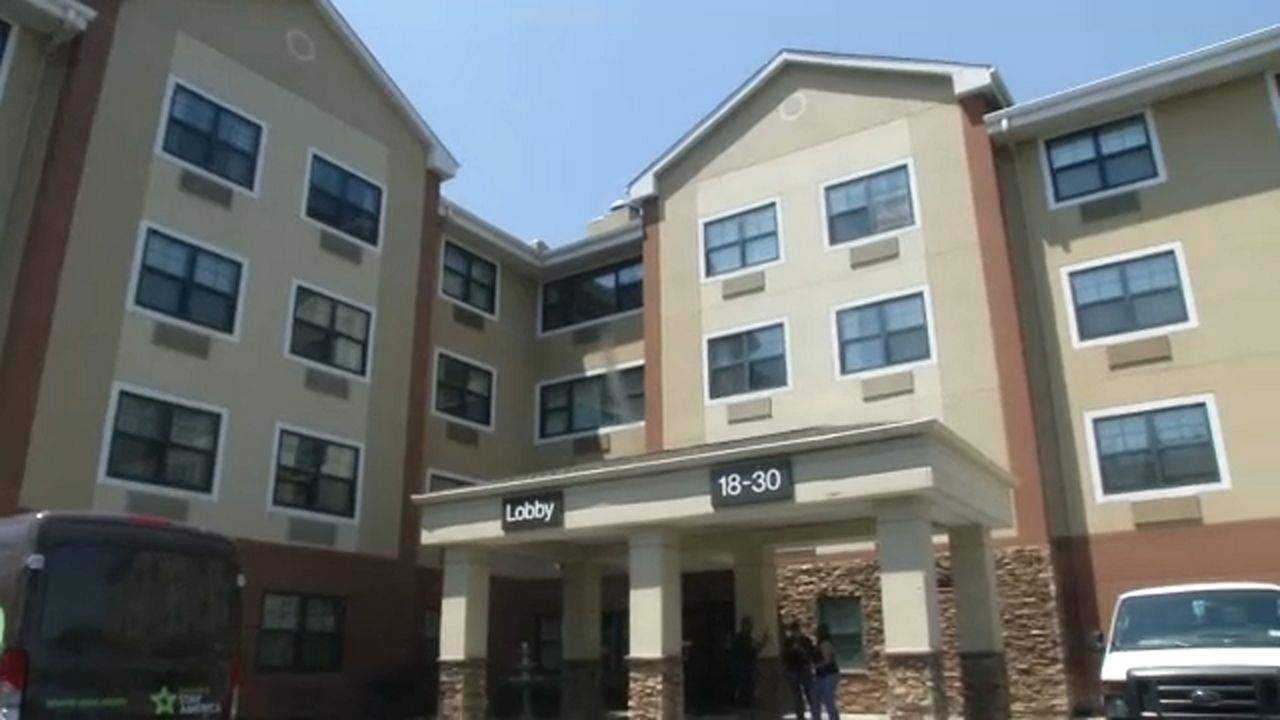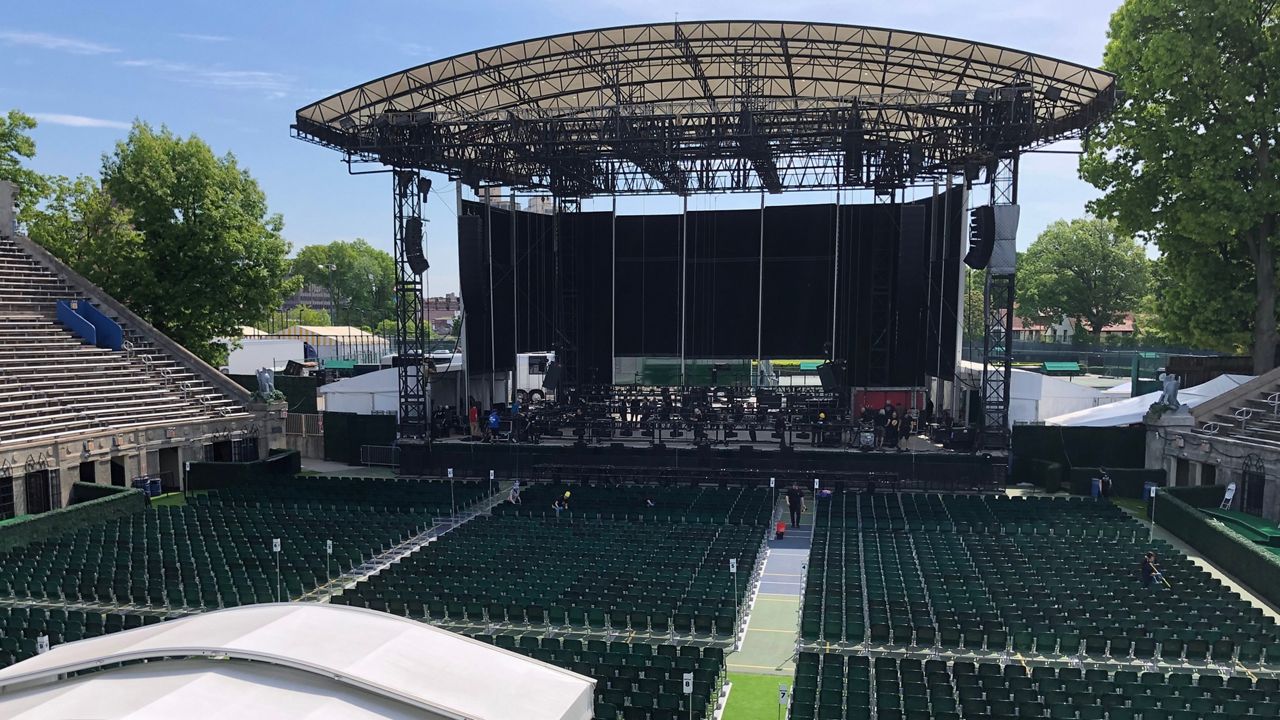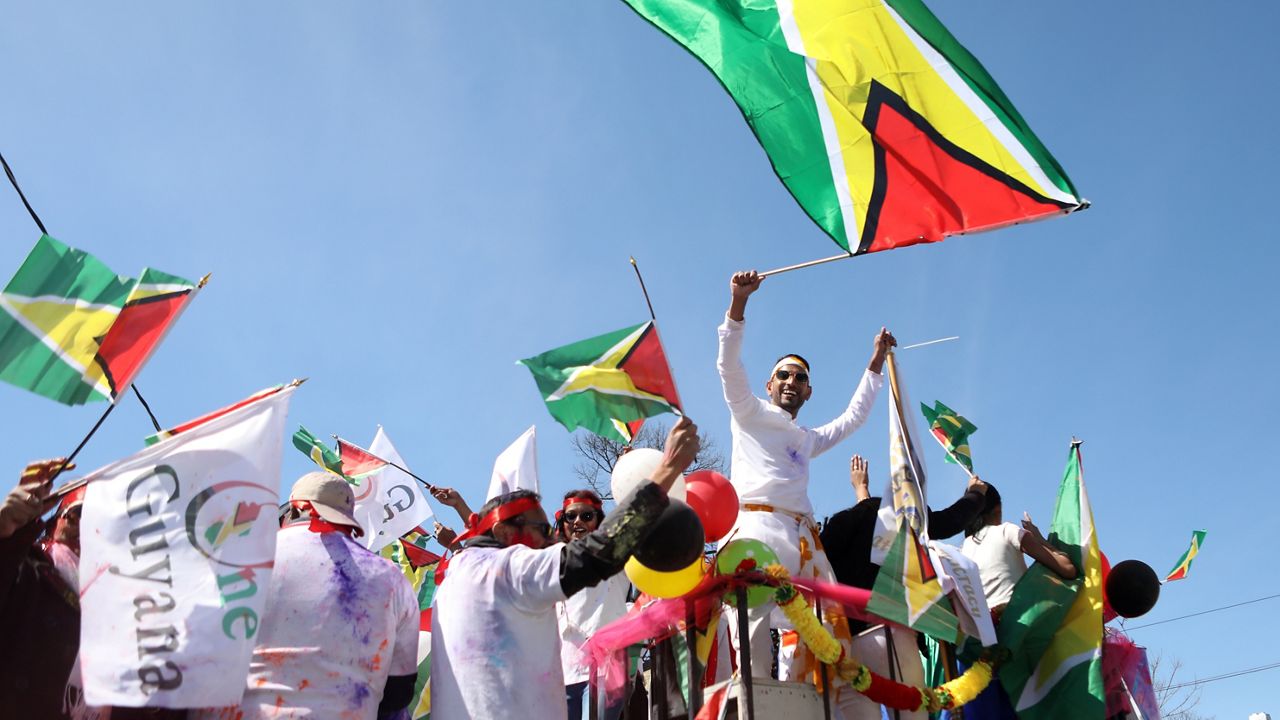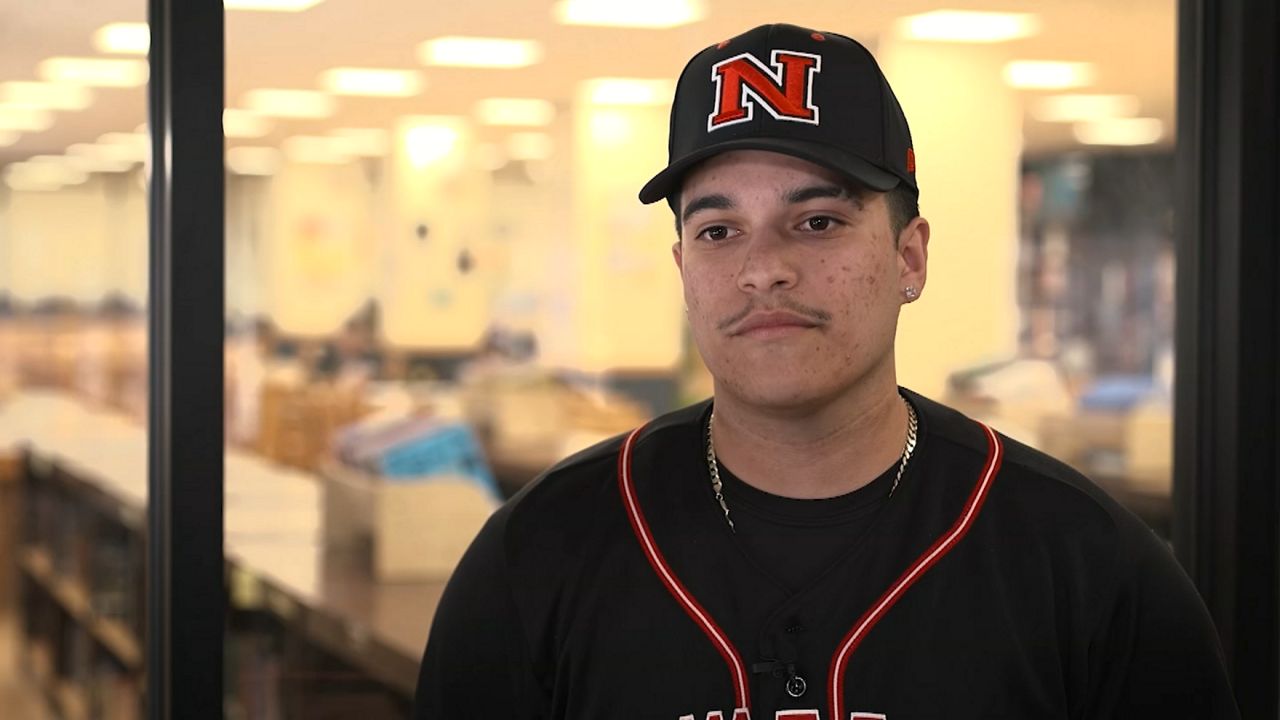A judge has ordered federal emergency officials to extend vouchers for temporary hotel housing for nearly 1,700 Puerto Rican hurricane evacuees, saying ending the program could cause irreparable harm.
Saturday night's decision came shortly after civil rights group LatinoJustice PRLDEF filed a lawsuit seeking relief for the Puerto Ricans, whose federal housing assistance vouchers were set to expire at midnight Sunday, meaning the evacuees could have been evicted from the hotels.
The order says the agency cannot end its Transitional Sheltering Assistance program until at least midnight on Tuesday. The organization is pushing to let families stay another six months.
U.S. District Judge Leo Sorokin of Massachusetts wrote that ending the program would drain other public resources. He also said the evidence showed problems with the Federal Emergency Management Agency's efforts to notify and provide transitional help for the hurricane refugees.
"The irreparable harm to the plaintiffs is obvious and overwhelming; tomorrow morning they will be evicted and homeless since by definition each plaintiff's home was rendered uninhabitable by the hurricane in Puerto Rico," he wrote in his decision.
In a statement, FEMA said it was "aware of the Judge's ruling regarding the end of the Transitional Sheltering Assistance program for Puerto Rico and is working with its vendor and notifying hotels that the TSA program has been extended until 5 July to comply with the Court's order."
The agency declined to comment further.
FEMA also announced that it will extend transportation assistance for Puerto Rico disaster survivors for an additional 60 days. Survivors now have until August 30 to take advantage of the program, which covers the cost of airfare, luggage, and pet fees for their return to Puerto Rico from the continental United States.
It is not clear if some of the evacuees have stayed in their hotels. On Saturday evening, some displaced Puerto Ricans who were staying at the Extended Stay America hotel in College Point in Queens had to pack their bags and say goodbye to some of their fellow evacuees, who they said were being transported to shelters. Some of the displaced Puerto Ricans were in tears, saying some were separated and sent to different shelters. It is not clear if these evacuees and others like them returned to their hotels Sunday.
Meanwhile, the state said it is launching a program to provide displaced Puerto Ricans with social services and housing.
Craig J. de Recat is a partner with Manatt, Phelps & Phillips, the law firm working pro bono with LatinoJustice on the suit.
He said evacuees had not been informed properly of the end of the program. He said most evacuees found out about the termination of housing from their hotels, or from watching television — not directly from FEMA.
He said a hearing is planned for Monday to see if the restraining order should be extended.
Puerto Ricans came to the states, including New York, after last year's Hurricane Maria, a Category 4 storm that devastated the U.S. island. It caused more than $100 billion in damage when it hit Puerto Rico on Sept. 20, and the island is still struggling to recover. Tens of thousands of businesses closed after people fled to the U.S. mainland.
In Massachusetts, 338 displaced households are still being sheltered, with 222 in through the FEMA program.
Florida Democratic Sen. Bill Nelson said Saturday that FEMA could extend the program under current law. He said a similar extension occurred more than a decade ago after Hurricane Katrina caused thousands from Louisiana to flee to Texas.
Nelson and Democratic members of the Florida Legislature said officials have told them the island remains too devastated to take back evacuees who remain on the mainland. There are few jobs, they said.
At a Super 8 in Orlando, there were up to 33 families staying at the motel in mid-May.
One of its occupants, 49-year-old Lizbeth Cruz, says she's not going back to Puerto Rico, saying she doesn't trust the government to deal with another disaster. She didn't know about the FEMA aid so she paid out of pocket for her hotels when she first arrived after the hurricane.
"I spent all my savings," she told the Orlando Sentinel.
She carries around a small notebook filled with pages of hand-written addresses in nearby counties with leasing office phone numbers, price ranges and annotations: Call back. Visit in person. Not available.





_PKG_Qns_Waterfront_Greenway_CLEAN_FIX_133800133_256)


